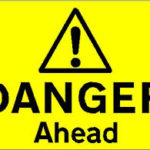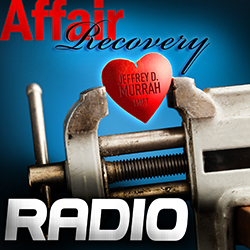An affair is bad news. Although the affair may be exciting for the cheater or the lover, it is bad news for you. The discovery of the affair can bring a shocking trauma with it. It is a shock to you, the cheater, and the lover. The discovery often changes what was previously going on.
There are many questions that come with the discovery of the affair. You are probably asking most of them right now. In some cases, you may be asking other people; in others, you are asking yourself questions about many issues. One of the perplexing questions is that of “What to do?”
Although the “What to do” question comes up quickly, you do not always have to answer it right away. Since your mind is designed to solve problems, upon asking this question, you will find yourself with many potential answers. It is true—there are many things you “could” do.
As you sort through the list of what you could do, some things are not worth the potential consequences. Many of the ideas have to be considered in terms of risk versus benefit. You may even have to count the cost or consider possible consequences if you did what you felt like doing.
At this point, you have to find a happy compromise between the world of emotional issues and the world of physical reality. You have to look at what you feel like doing and what you can legally or morally consider as options.
One of the tough things to consider is whether what you are considering will make matters worse. It could be that what you feel like doing right now will make matters worse for you, your family, or others. This question is often a matter of balance between what is good for you versus what makes things worse for others.
Going to either extreme (of only considering what is good for you or only considering what avoids making matters worse for others) is equally perilous. Thinking of others is often a lesson you learn in kindergarten, yet in dealing with infidelity, it has limited usefulness. It amounts to expecting you to play by the rules while everyone else is breaking them and laughing at you trying to stay within them.
Considering only yourself always has risks. You do have to consider and take care of yourself, yet doing so all the time has its own hazards. When your marriage and family is in danger, you have to take care of yourself and your family. In many cases, you may be the only one considering the impact on you and your family.
When the cheater is being totally irresponsible, it leaves you with some heavy decisions to make on your own. You may find yourself having to be the responsible one.
That is why I consider this a “balance” question. There are times when you have to consider whether your choices will make things worse. This does not mean that you do nothing, but it does mean that you consider the consequences of your actions. Part of being responsible is considering the consequences. Unleashing your revenge may feel good, yet the consequences may not make it a good choice.
Many times, the spirit of revenge takes over, and many things are done and said that allow you to vent your frustrations, but that end up making things very bad for you AND the cheater.
Consider the questions “Will it make things better?” and “Will it make things worse?” When you consider these questions together, it helps you make better choices. There are also many ways to make it worse. These include financial issues, financial debt, ruining reputations, and character assassination.
An example is that you may badmouth the cheater so bad that your family refuses to forgive them. Even years later, when you may have worked things out with them, your comments to your family may have so poisoned the relationship that they refuse to be congenial with them, much less forgive them.
Best Regards,
Jeff Murrah















